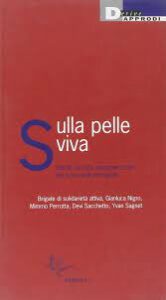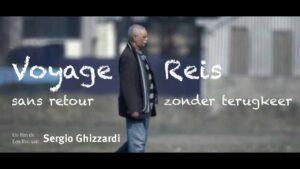Share
On Friday, the 8th of September 2023 Morocco was struck by a 6.8 magnitude earthquake, one of the worst natural disasters in the region for decades. With thousands dead and injured and many towns and villages destroyed, the question of international aid arose immediately. In times of crisis, the work of foreign aid workers and organisations is well noted. However, another, often neglected group is that of a diaspora community. This piece will focus on the important role that the Belgian Moroccan diaspora have played. The mobilisation of a diaspora community in times of crisis has been recorded as making major contributions to disaster relief response, encompassing a range of actions from financial remittances and aid to transnational solidarity and support. Indeed, Luca Dall’Oglio of the International Organisation (IOM) Chief of Mission in Washington DC, noted that “Diasporas’ engagement is a critical component of humanitarian assistance.” In this instance, the Moroccan Diaspora across the world began to mobilise, organising donations of essentials, money and medicine and establishing commemorative services for the victims, and the Moroccan community in Belgium was no exception.
The Moroccan Diaspora in Belgium
Moroccans make up the largest ethnic minority in Belgium, having been a presence in the country for the last 60 years, with the first Moroccans arriving in Belgium as guest workers in 1964. Much of the Belgian Moroccan community have retained close ties with Morocco, identifying with the country on a social and cultural level. This strong connection was shown following the earthquake.
Initial Response
Belgium’s Moroccan community organisations and individuals began to act immediately, firstly through aid and donations and secondly by organising and attending commemorative events to mourn the victims.
Donation Drives and Fundraising
Whilst the Belgian government did offer state-sanctioned help, informal donations have been the core of community mobilisations. Donations have been made through private collection points, consisting of essential items such as clothes, non-perishable foods, and medicines. Further still, more donations were made through the Red Cross. When talking to volunteers at donation centres, a common theme of solidarity emerged, with many Belgian-Moroccans citing a need to do anything to help their countrymen and brothers.
Commemoration for the victims.
Alongside aid and disaster relief funds, the Moroccan Diaspora were instrumental in the organisation and made up the majority of mourners at vigils held in cities such as Brussels and Antwerp. As Harrington and Cole (2022) note, this collective mourning and solidarity is essential in the emotional and psychological support of a community following a natural disaster and as such demonstrates the presence of the diaspora both in Morocco’s national grief and also in its recovery and resilience.
Conclusion
Overall, the mobilisation on the part of the Belgian Moroccan diaspora in direct response to the September earthquake demonstrates the strong connection between the diaspora and Morocco as a homeland, on an emotional and cultural level as well as illustrating the ability of the diaspora to rapidly mobilise resources. It also demonstrates the important role of diaspora’s in the wake of natural disasters.
Sources
– Harrington, Elise, and Aileen Cole. “Typologies of Mutual Aid in Climate Resilience: Variation in Reciprocity, Solidarity, Self-Determination, and Resistance.” Environmental Justice, vol. 15, no. 3, June 2022, pp. 160–69. DOI.org (Crossref), https://doi.org/10.1089/env.2021.0046.
– Dissanayake, Lakshman. (2011). Natural Disasters and Forced Migration: the Case of the tsunami disaster in Sri Lanka.
– Naik, Asmita, et al. Diaspora Response to Natural Disasters. UN. 2007, https://doi.org/10.18356/3e4d8d6d-en.
– Timmerman, Christiane, Nadia Fadil, Idesbald Goddeeris, Noel Clycq, and Karim Ettourki. “Introduction.” In Moroccan Migration in Belgium: More than 50 Years of Settlement, edited by Christiane Timmerman, Nadia Fadil, Idesbald Goddeeris, Noel Clycq, and Karim Ettourki, 1:9–20. Leuven University Press, 2017. https://doi.org/10.2307/j.ctt21c4s72.3.
– “Morocco Earthquake: What We Know.” BBC News, 9 Sept. 2023. www.bbc.com, https://www.bbc.com/news/world-africa-66762329.
– “Belgium’s Moroccan Community Shows Support for Quake Victims – DW – 09/13/2023.” Dw.Com, https://www.dw.com/en/belgiums-moroccan-community-shows-support-for-quake-victims/video-66799162. Accessed 4 Oct. 2023.
– “‘Everyone Wants to Help’ Brussels’s Moroccan Community Mobilises for Quake Victims.” France 24, 13 Sept. 2023, https://www.france24.com/en/video/20230913-everyone-wants-to-help-brussels-s-moroccan-community-mobilises-for-quake-victims.


